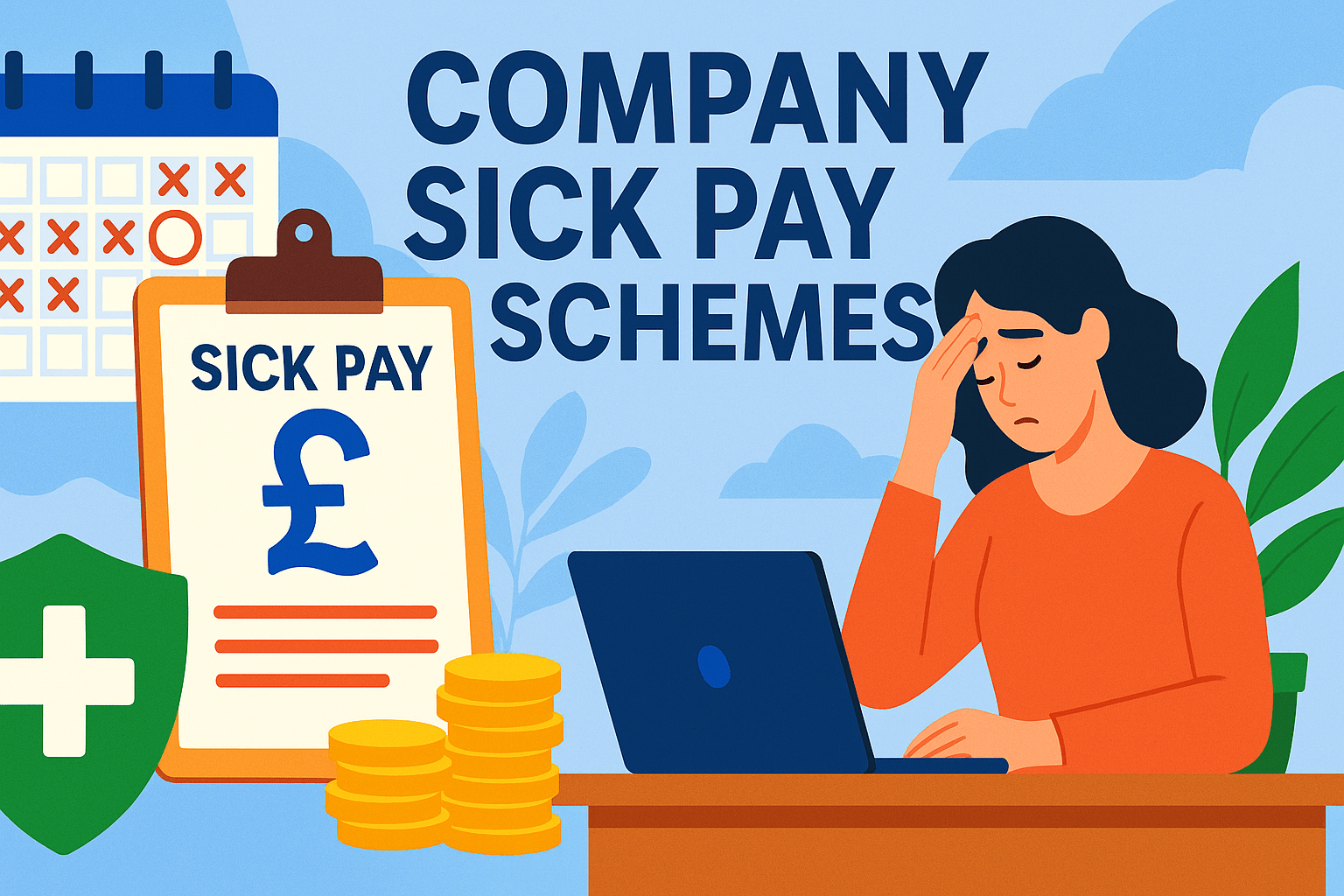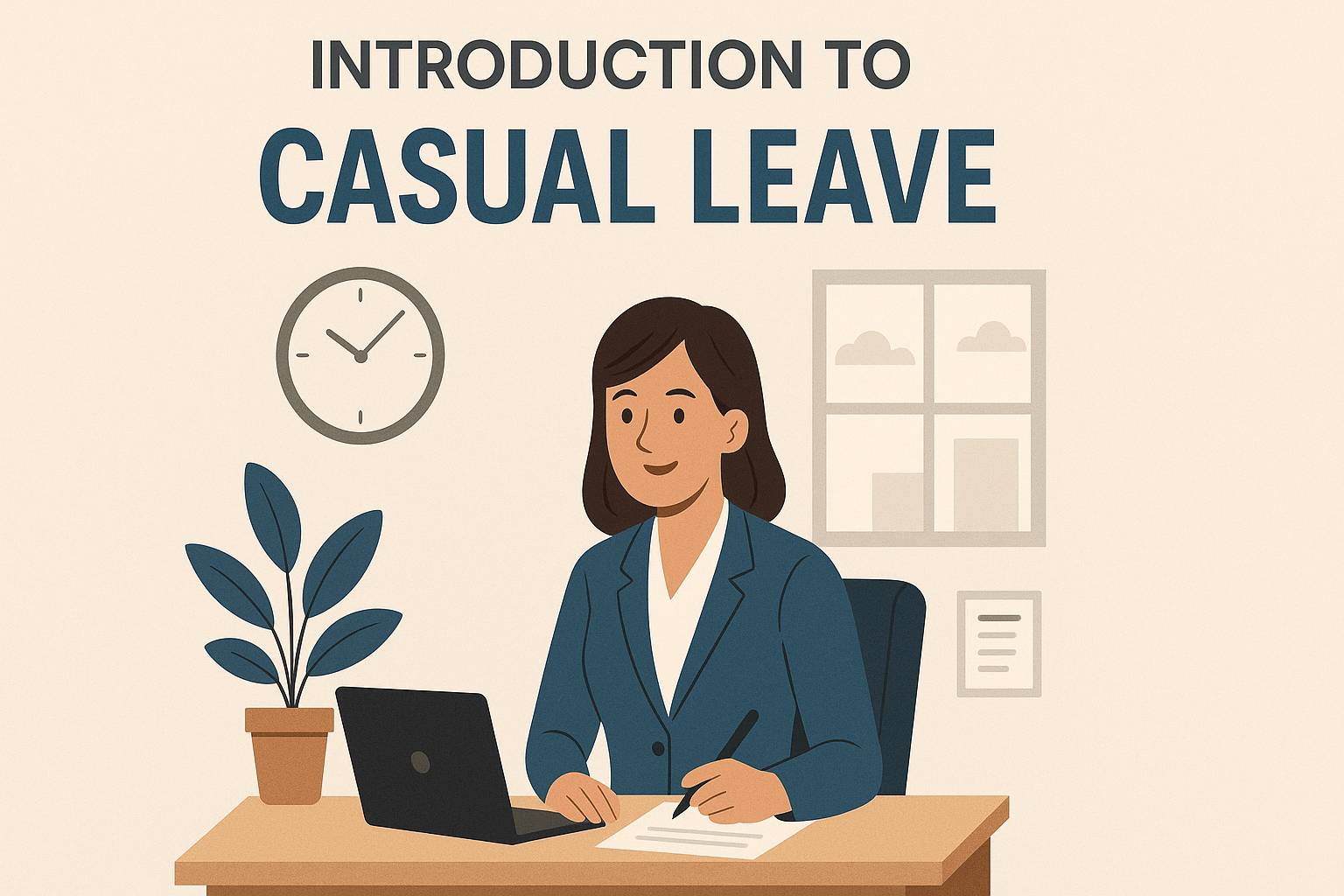Dependant Leave: Your Rights and Entitlements in the UK

When a family emergency strikes, the last thing you should worry about is whether you can take time off work. Fortunately, UK law provides specific protections for employees who need to deal with urgent situations involving their dependants. The right to take time off for dependants is a legal right available to all employees from their first day of employment, with no length of service requirement. Understanding your rights around dependant leave can make all the difference when life throws you an unexpected curveball.
Whether it’s a child falling suddenly ill at school, an elderly neighbour having an accident, or the unexpected breakdown of your usual care arrangements, dependant leave offers crucial protection for working people facing family emergencies. This legal right came into force on 15 December 1999 and is incorporated into the Employment Rights Act 1996. This comprehensive guide will walk you through everything you need to know about your entitlements, from who qualifies as a dependant to what steps you should take if your employer unreasonably refuses your request.
Introduction to Dependant Leave
Dependant leave, often referred to as time off for dependants, is a vital statutory right that ensures employees can respond to emergencies or unexpected incidents involving those who rely on them. This right is available to all employees from their first day of work, regardless of how long they’ve been with their employer. The law recognises that life’s challenges—such as a dependant falling ill, being injured, or facing a sudden problem—can arise without warning.
Under this entitlement, you can take a reasonable amount of unpaid time off to deal with the immediate needs of your dependant. This could include providing urgent care, making funeral arrangements after a bereavement, or arranging alternative care when regular support breaks down. The focus is on supporting employees during difficult times, allowing them to step away from work without fear of losing their job or facing disciplinary action.
The statutory right to dependant leave is designed to cover those moments when you need to act quickly—whether that’s rushing to the hospital, handling an unexpected incident at home, or making arrangements after a loss. While the leave is typically unpaid, it provides crucial peace of mind that your job is protected while you take care of what matters most.
What is Time Off for Dependants Leave
Dependant leave, also known as time off for dependants, is a statutory right under the Employment Rights Act 1996 that allows employees to take time off work to deal with emergencies involving people who depend on them. This legal protection recognizes that family crises don’t follow convenient schedules and that employees shouldn’t face workplace penalties for responding to urgent situations.

The key distinction between dependant leave and other types of leave lies in its emergency nature. Unlike annual leave, which you plan in advance, or parental leave, which covers predictable childcare needs, dependant leave specifically addresses unforeseen circumstances that require immediate attention, such as an unexpected or sudden problem involving a dependant. It’s also different from compassionate leave, which many employers offer for bereavement situations, though there can be some overlap.
The primary purpose of this statutory right is to provide immediate response capability when emergencies involving dependants occur. The law recognizes that employees need protection from disciplinary action or dismissal when they must suddenly leave work to handle genuine family crises.
The amount of time off for dependants must be reasonable and is typically one or two days, depending on the circumstances.
Who Qualifies as a Dependant
The definition of who counts as a dependant is broader than many people realize and doesn’t require a formal legal relationship in all cases. Understanding these relationships is crucial for knowing when you can exercise your rights.
Immediate family members include:
Your spouse or civil partner
Children, including adopted children and stepchildren
Parents and parents-in-law
Grandchildren and grandparents
Extended relationships covered:
Anyone who reasonably relies on you for care during an emergency
People living in your household who depend on you (excluding tenants, lodgers, or employees)
An elderly neighbour who depends on you for support
A disabled neighbour who relies on your assistance
Other family members who rely on you for support in an emergency
The law specifically recognizes that modern family structures are diverse. You don’t need to prove a blood relationship if someone genuinely depends on you for care during emergencies. For example, if you regularly help an elderly neighbour with daily tasks and they have no other immediate support, they could qualify as your dependant for the purposes of this leave.
The right to time off for dependants does not extend to friends or pets, but employers may allow time off in such cases at their discretion.
When You Can Take Dependant Leave
Dependant leave covers specific emergency situations that require your immediate attention. The key word here is “emergency” – these must be unforeseen circumstances that you couldn’t have planned for.
Qualifying emergency situations include:
A child falls ill unexpectedly at school and needs immediate collection and care
Your usual childcare arrangements break down suddenly, leaving you without alternative care
A sudden problem involving a dependant, such as a care provider not showing up at short notice
A dependant is injured in an accident requiring urgent medical attention
The death of a dependant, requiring you to make immediate funeral arrangements
Emergency situations involving elderly relatives who need urgent care or support
Your partner going into labour unexpectedly
A dependant being the victim of assault or serious crime

It’s important to understand that these situations must be unforeseen. Pre-planned medical appointments, routine hospital appointment visits, or situations you knew about in advance don’t qualify for dependant leave. The emergency nature is what distinguishes this right from other forms of leave. Emergencies can include unexpected disruption to care arrangements, such as a school or care facility closing without warning.
For example, if your child’s school suddenly closes at short notice due to a heating system failure, that’s an emergency. However, a planned parent-teacher conference or sports day wouldn’t qualify, as you would have advance notice to arrange alternative coverage or use annual leave.
If a dependant falls ill unexpectedly, this also qualifies as an emergency and entitles you to take time off to manage the situation.
Disruption or inconvenience caused to the employer’s business should not be taken into account when determining how much time off is reasonable.
How Much Reasonable Time You Can Take
One of the most flexible aspects of dependant leave is that there’s no fixed limit specified in law. Instead, you’re entitled to take a “reasonable amount” of time to deal with the immediate emergency and make necessary arrangements for ongoing care. The amount of time off can vary depending on individual circumstances, such as the nature of the emergency, available support, and personal family situation.
Typical timeframes include:
1-2 days to address the initial needs of the emergency
Sufficient time to arrange alternative care arrangements
Time needed to make urgent funeral arrangements following a death
Whatever period is reasonable given the specific circumstances
The concept of “reasonable” depends entirely on your specific situation and individual circumstances. For a child with a minor illness, one day might be sufficient to arrange alternative care. For a serious accident involving a dependant, you might need several days to ensure they receive proper medical attention and establish care arrangements. What is considered reasonable will vary depending on the initial needs and the unique factors of each case.
A common sense approach should be used by both employers and employees when determining what is reasonable, encouraging open communication and flexibility in arrangements.
There’s also no limit on how frequently you can take dependant leave throughout the year. If you face multiple genuine emergencies, you’re entitled to take time off for each one, provided each instance meets the criteria for emergency situations.
However, if you need extended time off beyond the immediate emergency response, you’ll likely need to transition to other types of leave. Many employers will work with you to arrange unpaid leave, annual leave, or other arrangements for longer-term care needs.
Employees should keep a record of all communications with their employer regarding time off for dependants.
Notification Requirements
When an emergency occurs, you must tell your employer about your absence as soon as reasonably possible. The law recognizes that emergencies don’t always allow for advance notice, so the requirements are flexible while still maintaining communication expectations.
Your notification should include:
The reason for your absence and who is affected
How long you expect to be away (your best estimate)
Contact information if your employer needs to reach you
Any efforts you have made to find alternative arrangements for care
You can notify your employer by phone, email, text message, or any other reasonable method. There’s no requirement for written proof or medical certificates during the emergency period. The law specifically acknowledges that obtaining documentation might not be practical when dealing with urgent situations.

If the emergency prevents you from contacting your employer before your absence starts, you should get in touch as soon as possible. For example, if you’re accompanying a dependant to the hospital and can’t call until they’re receiving medical treatment, that would be considered reasonable.
The key is honest, prompt communication. Employers appreciate being kept informed about the situation and your expected return, even if the timeline remains uncertain.
The right to take time off for dependants applies to all employees from their first day of employment, with no qualifying service period required.
Pay During Dependant Leave
Understanding the financial implications of dependant leave is crucial for planning how to handle emergencies. The statutory right to dependant leave doesn’t include a right to paid time off, though many employers choose to offer paid leave as an additional benefit. In some emergency situations involving illness, sick leave may be appropriate, but it is distinct from dependant leave and subject to different rules.
Payment arrangements typically fall into these categories:
Unpaid leave: The statutory minimum – no pay during absence (for information on statutory sick pay, see here)
Employer discretion: Some companies offer paid dependant leave in their policies
Employment contract provisions: Check your contract for specific arrangements
Annual leave substitution: Using holiday entitlement for paid time off
Paid holiday: Employees may use paid holiday as an alternative for personal or family-related issues not covered by dependant leave
Many employers recognize the value of supporting employees during family crises and offer paid dependant leave as part of their employee benefits package. This is particularly common in larger organizations with comprehensive leave policies.
If your employer doesn’t offer paid dependant leave, you might be able to arrange to use annual leave instead, giving you paid time off while still protecting your employment rights. Some employees also arrange to make up the time at a later date or take unpaid leave by mutual agreement.
Before you need it, review your employment contract and employee handbook to understand your company’s specific policies around dependant leave and emergency time off. Employers can offer more generous policies than statutory minimums, including paid parental leave.
What Doesn't Count as Dependant Leave
Not every family-related absence qualifies for dependant leave protection. Time off for dependants is an unpaid right under employment law, intended for short, necessary absences in unforeseen emergencies. Understanding what doesn’t count helps you choose the right type of leave for different situations and avoid potential disputes with your employer.
Situations that don’t qualify include:
Pre-planned medical appointments or routine check-ups
School events like sports days or parent-teacher meetings
Situations you knew about in advance
Non-emergency childcare needs or school holidays
Planned time off for family occasions or celebrations
Routine care responsibilities you could arrange coverage for
The key distinction is between emergency and planned situations. If you have advance notice of a situation, you’re expected to use other types of leave or make alternative arrangements. For example, if you know your regular childminder will be unavailable next week, you should arrange alternative care or book annual leave rather than claiming dependant leave.
Similarly, while a dependant’s serious illness might initially qualify for dependant leave, ongoing care needs would typically require transitioning to other arrangements like unpaid leave, annual leave, or flexible working arrangements.
Always check your employer’s policy and company handbook for specific details, as some employers may offer more generous provisions or additional procedures for time off in these situations.
Carer’s leave is distinct from time off for dependants and is intended for planned care for a dependant with long-term care needs.
Child’s School and Dependant Leave
Unexpected incidents at a child’s school—such as closures due to power outages, flooding, or other emergencies—can disrupt your usual care arrangements with little or no warning. In these situations, the time off for dependants policy allows you to take a reasonable amount of unpaid time off to manage the disruption.
If your child’s school closes suddenly, you can use dependant leave to either care for your child yourself or to arrange alternative care. This right is specifically designed to help parents and guardians respond to unexpected disruptions in care arrangements, ensuring that children are looked after safely during school hours.
To make use of this entitlement, it’s important to notify your employer as soon as possible about the unexpected incident and your need for time off. If your employer requests it, providing evidence of the school closure—such as an email or notice from the school—can help clarify the situation. Remember, the law supports your right to unpaid time off in these circumstances, as long as the amount of leave taken is reasonable and directly related to the emergency.
Long Term Care and Dependant Leave
While time off for dependants is intended for emergency situations, there are times when a dependant’s needs extend beyond a one-off incident and require ongoing support. For these longer-term care needs, employees can request carer’s leave—a separate statutory entitlement that allows you to take up to one week’s unpaid leave per year to provide or arrange care for a dependant with a long-term care requirement.
Carer’s leave can be taken in full days or half days, offering flexibility to fit around your work schedule and the needs of your dependant. If you find yourself needing more time to manage long term care, it’s a good idea to discuss your situation with your employer. Many organisations are open to exploring flexible working arrangements, such as adjusted work hours or remote working, to help you balance your responsibilities.
In some cases, parental leave or other forms of unpaid leave may also be appropriate, depending on your circumstances and your employer’s policy. Open communication is key—by discussing your needs and exploring all available options, you can find a solution that supports both your family and your work commitments. Remember, the law is designed to protect your right to unpaid time off in emergency situations, and additional support may be available for ongoing care needs.
Alternative Leave Options
When dependant leave isn’t appropriate for your situation, several other options might meet your needs. Understanding these alternatives helps you choose the right approach for different circumstances. Carer’s leave is available for planned care needs and is distinct from emergency dependant leave, allowing employees to provide assistance to dependants with long-term care needs in a non-emergency context.
Parental leave covers planned time off for childcare responsibilities. This includes situations like school holidays, planned medical appointments, or taking time to settle a child into new care arrangements. Parental leave is typically unpaid, requires prior notice to your employer, and eligibility criteria include having worked for your employer continuously for a minimum period (though from April 6, 2026, unpaid parental leave becomes a day-one right in the UK). Employees are entitled to return to the same job if parental leave is four weeks or less, or to a similar or equivalent job if the leave is longer. Employers may allow you to request a longer period of leave, subject to their policy. For guidance on fair annual leave allowances for part-time staff or employees with changing circumstances, see this detailed guide.
Parental bereavement leave: Eligible employees have a statutory right to take paid or unpaid leave following the death of a child or stillbirth, with specific entitlements and eligibility criteria.
Paternity leave: Working parents may be eligible for paternity leave, including additional leave and pay if their baby requires neonatal care after birth, subject to eligibility criteria and duration.
Carer’s leave: Employees can take up to one week’s unpaid leave every 12 months to care for a dependent with a long-term care need.
Employees must have worked for their employer continuously to qualify for certain rights, such as parental leave and the right to request time for study or training.
Self-employed individuals do not have a statutory right to time off for dependants.
Some rights require a minimum length of service, but dismissal for taking leave to care for dependants is prohibited regardless of service length.
Employees can make a statutory request for time off or flexible working, which must be submitted in writing and clearly labeled as such; employers have legal obligations to consider these requests.
Employees have the right to request time for study or training, following statutory procedures.
It is important to provide assistance to your dependant during any period of leave.
Leave entitlements may apply in both serious and life-threatening situations, but the condition does not always have to be life-threatening to qualify.
Understanding eligibility criteria for each type of leave is essential.
Compassionate leave is often provided by employers for bereavement and serious family situations. While not a statutory right, many companies offer paid compassionate leave for situations like attending funerals or supporting family members through serious illness.
Annual leave remains your best option for predictable family commitments. School events, routine appointments, and planned family time should typically be covered using your holiday entitlement.
Flexible working arrangements can help with ongoing care responsibilities. If you’re regularly caring for dependants, requesting flexible hours, remote working, or job sharing might provide a sustainable long-term solution.
Unpaid leave by employer agreement (including policies such as unlimited annual leave) can bridge gaps when statutory entitlements don’t cover your needs. Many employers are willing to grant additional unpaid time off for genuine family circumstances.
U.S. entitlements: Under the Family and Medical Leave Act (FMLA), eligible employees of covered employers may receive up to 12 workweeks of unpaid, job-protected leave in a 12-month period for specific family and medical reasons. Paid family and medical leave (PFML) programs provide partial wage replacement for serious family health conditions in the U.S. Thirteen states and the District of Columbia have mandatory PFML programs, and as of 2026, Delaware and Minnesota are launching paid leave programs for new children and family illness. Employees in the U.S. generally have access to unpaid, job-protected leave under federal law, and eligibility criteria apply.

If Your Employer Refuses Dependant Leave
If your employer refuses to grant dependant leave or treats you unfairly for taking it, you have several options for addressing the situation. The law provides strong protections against discrimination or punishment for exercising your statutory rights. If your request for dependant leave is unreasonably refused, you may have grounds for a legal challenge.
Start with informal discussion:
Raise the issue directly with your manager
Refer to your statutory rights under the Employment Rights Act 1996
Provide clear information about why the situation qualified as an emergency
Ask for the refusal decision to be reconsidered
If your employer turns down your request, and you believe the refusal is unfair or unreasonably refused, seek advice from your HR department, a union representative, or a legal professional to understand your options.
If informal discussion doesn’t resolve the issue, you can submit a formal grievance through your company’s procedures. Document all communications and keep records of the emergency situation and your employer’s response.
External support options include:
Contacting the ACAS helpline for free advice and guidance
Seeking legal advice if you believe your rights have been violated
Using ACAS early conciliation services to resolve disputes
The law provides strong protection against dismissal or other detriment for taking dependant leave. Dismissing an employee for taking time off to care for dependants is considered automatically unfair, and compensation for unfair dismissal in these cases is capped at the current statutory limit. If your employer treats you unfairly for exercising this right, you may have grounds for legal action.
Employment Tribunal Claims
If your employer’s refusal or treatment crosses into unlawful territory, you have the right to bring an employment tribunal claim. The protections around dependant leave are robust, and tribunals take violations seriously. If you are dissatisfied with the outcome of an employment tribunal, you may be able to appeal to the employment appeal tribunal.
Key protections include:
Automatic unfair dismissal protection if you’re fired for taking dependant leave
Right to claim compensation for detriment or discrimination
No qualifying period of employment required for these protections
Protection applies from your first day of work
For advice on other workplace rights, such as redundancy consultation or understanding your redundancy notice period, see our additional guides.
You must submit any employment tribunal claim within three months of the incident that gave rise to your complaint. This timeline is strict, so it’s important to act quickly if you believe your rights have been violated.
Before proceeding to tribunal, you’ll typically need to use ACAS early conciliation, which can often resolve disputes without the need for formal legal proceedings. This process is free and can be an effective way to reach a settlement with your employer.
Conclusion
Dependant leave represents a crucial protection for working people facing family emergencies. Understanding your rights ensures you can respond to crises without fear of workplace punishment, while knowing the limitations helps you choose appropriate leave for different situations.
The key to successfully navigating dependant leave lies in understanding what qualifies as an emergency, communicating clearly with your employer, and knowing your options if problems arise. Remember that this statutory right exists alongside other forms of leave and workplace protections designed to support work-life balance.
Whether you’re dealing with a sudden illness, unexpected care breakdown, or other family emergency, your employer should support your need to take reasonable time off. If you face difficulties or have questions about your specific situation, organizations like ACAS provide free, confidential advice to help you understand and exercise your employment rights.
Taking time to understand these rights before you need them puts you in the best position to handle whatever family emergencies life might bring while protecting your career and financial security.



